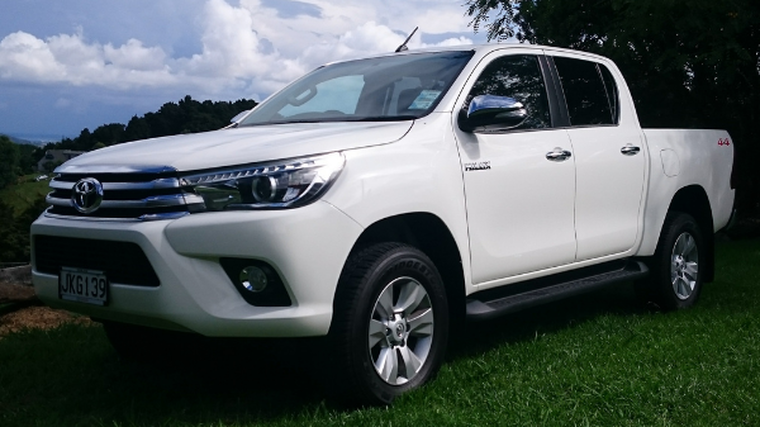Toyota appeals class-action ruling

Toyota has appealed against a class-action ruling that could see more than 260,000 owners receive damages of almost NZ$3 billion.
But concerns remain about the environmental impact of faulty diesel particulate filters (DPFs) that caused problems with some of Australia’s most popular vehicles.
The federal court handed down a decision in April that found Toyota had sold cars with defective DPFs over a five-year period.
The action was brought by Ken Williams through lawyers Bannister Law Class Actions and Gilbert + Tobin. Williams was awarded A$18,000 after he found his vehicle emitting white smoke several months after buying it. Despite repeatedly trying to address the issue, it couldn’t be fixed.
On June 20, Toyota filed an appeal against the decision alleging mistakes of fact and law, reports The Guardian.
The class-action ruling applies to owners of defective Hilux, pictured, Prado and Fortuner diesels, who bought their new vehicles between October 1, 2015, and April 23, 2020, and still own them.
More than 260,000 people may be affected, although it is unclear what the cumulative or individual environmental impact was.
Lawyers have alleged the faulty filters decreased fuel efficiency, caused foul-smelling emissions, and increased the wear and tear on engines.
The court found the defect led to a 17.5 per cent reduction in the value of the affected vehicles when they were sold. It also found Toyota engaged in misleading or deceptive conduct when marketing and selling the cars.
In New Zealand, all the DPFs that were identified have been rectified for those affected customers.
Matt Mackenzie, a partner with Gilbert + Tobin, describes the federal court’s as significant and may leave Toyota footing a large bill. He says: “It’s one of the few instances of the federal court exercising its power to award aggregate damage.”
With an expected average compensation pay-out of A$10,500 per vehicle, Toyota may be facing a total bill of more than A$2.7b across the Tasman. “It will depend on how many group members register their interest,” adds Mackenzie.
Toyota has committed to opposing the court’s decision, stating in a press release: “Toyota’s appeal includes challenges to the factual and legal basis for the award of damages, particularly in circumstances where many of the group members did not experience the DPF issue.”
The company will continue to offer free-of-charge repairs to any vehicle owners affected by the DPF issue.
Mackenzie says while his law firm is committed to defending the appeal, compensation may be delayed.
“There won’t be any pay-outs until that appeal has been determined,” he explains. “It turns on the availability of the parties and of the full court, but it’s not unexpected for that to take somewhere in the order of 12 months.”
Donna Green, from Digital Grid Futures Institute at the University of NSW, says she cannot say what the environmental effect would be without knowing what was in the tailpipe emissions.
But with the average vehicle staying on the road for 17 years, she adds it was likely have an impact on human health.
“Initially I thought, ‘God, diesel particulates in the car with the kids in the back, that’s going to have a health impacts’,” says Green. “There’s a whole cocktail of air pollution that comes out of a tailpipe and none of it is good. For anyone within nose distance, it will have an impact on their health.”
Green adds “additional, unnecessary” tailpipe emissions may have other effects beyond the immediate risk to human health, such as increased carbon dioxide (CO2) output.





